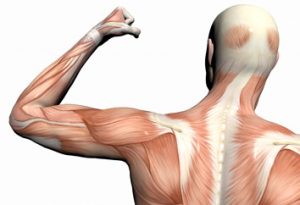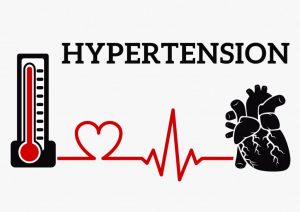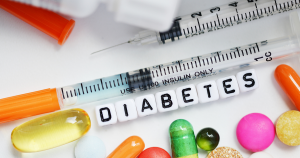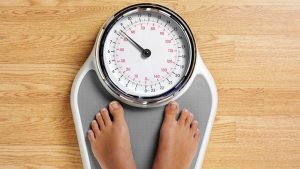Vitamin D — nicknamed “sunshine vitamin” because of its ability to penetrate the body by sunlight — is a key player in keeping the human body healthy. The key function, according to the National Institutes of Health Office of Dietary Supplements, is to facilitate the ingestion of calcium, making it essential for bone development and bone remodelling (when mature bone tissue is replaced, and fresh bone tissue is formed) Because of this, a lack of vitamin D will lead to thin, fragile, or misshapen bones. Yet vitamin D also provides a range of other effects, ranging from beneficial for both physical and mental wellbeing. Here are nine vitamin D benefits that you need to know about — including ways to get more vitamins in your daily diet.
Table of Contents
- 9 Benefits Of Vitamin D
- 1. It strengthens your bones
- 2. It helps fight inflammation and support the Immune System
- 3. It helps strengthen muscle
- 4. It helps improve Oral Health
- 5. It can help treat hypertension
- 6. It can help prevent Type 1 & 2 Diabetes
- 7. It can help you lose weight
- 8. It may help reduce the chances of certain cancers
- 9. It can also help battle Depression
- Ways to get more Vitamin D
9 Benefits Of Vitamin D
1. It strengthens your bones

Vitamin D is famous for its bone-building and strength. “Vitamin D promotes the calcium absorption in your intestines, which ultimately enables normal bone mineralization,” says Jackie Newgent. Essentially, the calcium that supports your bones would not even be able to do its job without vitamin D. “You need vitamin D for bone growth — also to keep bones from being fragile.” If combined with calcium, it will help alleviate osteoporosis, a condition that means the bone density and strength is decreased, she says.
2. It helps fight inflammation and support the Immune System

Dr Nasrallah notes that vitamin D will also help to develop immunity. “It will aid the immune system by fighting infectious bacteria and viruses,” she says. In fact, this role in the potential prevention of infections has become a major concern during the COVID-19 pandemic, as scientists are interested in its possible role in the outcomes of infection. “The role in viral infections such as influenza and coronavirus is of special importance,” says Barry Boyd. It points to a 2017 BMJ analysis of 25 randomized trials comparing vitamin D supplements to placebos, which discovered that vitamin D lowers the risk of acute respiratory infection with either weekly or daily vitamin D supplementation, particularly in people who were deficient in vitamin D.
“Reports show that high latitudes and the winter season are risk factors for both reduced vitamin D, elevated influenza and other respiratory disorders and allergic reactions,” he says. “We are now seeing a similar trend with higher mortality rates for COVID-19 infections,” although more research still needs to happen to determine whether the connection is causal or simply a correlation.
3. It helps strengthen muscle

In addition to its bone-building capabilities, vitamin D also has an influence on muscle building. “Deficiency of vitamin D can raise the risk of weak muscles, which in turn increases the risk of falling,” says Lana Nasrallah, MPH, RD, clinical dietician at UNC Health. This is particularly important for the elderly. “Vitamin D can help improve muscle strength by preventing falls, which is a common problem leading to severe disability and death in older adults.”
4. It helps improve Oral Health

Since vitamin D enables our body to absorb calcium, it plays a key role in promoting oral health by reducing the risk of gingivitis, gum disease and tooth decay. A 2011 study in The Journal of the Tennessee Dental Association reports that while the research is limited, there is an “emerging hypothesis” that vitamins are beneficial to oral health due to their effect on bone metabolism. And “it’s capacity to work as an anti-inflammatory agent and to promote the production of anti-microbial peptides.”
5. It can help treat hypertension

According to a 2019 study released in Current Protein & Peptide Science, vitamin D may play a significant role in the treatment of hypertension — one of the markers of heart disease — says Newgent. According to the authors of the review, “even short-term vitamin D deficiency can directly increase BP [blood pressure] and enhance target organ damage.” The scientists go on to say that, “because of the high correlation between vitamin D and hypertension, vitamin D supplementation treatment may provide new insight into the treatment of hypertension.”
6. It can help prevent Type 1 & 2 Diabetes

Although the studies are not definitive, vitamin D may be effective in preventing both type 1 and type 2 diabetes, says Newgent. One such study, published in 2006 in Diabetes Care, found that although vitamin D alone did not effectively reduce the risk of an excessive amount of sugar in the blood, a combined daily intake of > 1,200 mg of calcium and > 800 IU of vitamin D could significantly decrease the risk of type 2 diabetes.
7. It can help you lose weight

Dr Boyd pointed out that obesity is a proven risk factor for poor vitamin D levels — which means that more vitamin D will assist with weight loss. One 2009 research in the British Journal of Nutrition showed that, in overweight or obese people with low calcium levels, those taking a daily dose of calcium combined with vitamin D were much more effective than those taking a placebo supplement due to the “appetizing effect” of the mixture.
8. It may help reduce the chances of certain cancers

Dr Boyd points to different studies — many of which are referenced on the website of the National Cancer Institute (NCI)—that provide some evidence that vitamin D may have cancer-fighting abilities. “The proof is growing that treatment of vitamin D will boost cancer outcomes,” he says. Colorectal, breast, prostate, and pancreatic cancers are the tumours for which most human records are available.
The NCI clearly explains a variety of explanations for why researchers are interested in the connection between vitamin D and the lower risk of cancer. The organization points out that certain evidence suggests that the prevalence and mortality rates of some cancers are lower among people living in southern latitudes, where exposure to the sun is comparatively high than among those residing in northern latitudes, but more work needs to be done to find a clear causal or correlational relationship between higher exposure to sunlight and lower exposure to sunlight.
9. It can also help battle Depression

The light will make the mood lighter, and so does vitamin D. According to a 2017 review article in the journal Neuropsychology, researchers have established an “important association between depression and vitamin D deficiency.” While they also agreed that further study is required to identify the precise mechanisms of depression — such as whether low vitamin D levels are a cause or effect of depression — the writers suggest screening for and treatment of vitamin D deficiency in participants.
Ways to get more Vitamin D
When you notice that you are deficient or low in vitamin D consumption, there are a few main ways that you may raise the routine dosage — starting with around 20 minutes of sunshine a couple of days a week, according to Newgent. “The main cause of vitamin D deficiency is a lack of exposure to sunlight, an increasing feature of modern life,” says Dr Boyd. Yet remember: you do need to use sunscreen any time you go outside — even to get vitamin D.
Besides sunshine, you also can get additional vitamin D from a few (albeit very few) foods, such as fatty fish (including salmon, tuna, mackerel and sardines) and mushrooms (some of which are exposed to ultraviolet ( UV ) light to raise vitamin D levels), says Drs. It’s Nasrallah and Newgent. Foods such as rice, orange juice, fruit and morning cereals can also be fortified with vitamin D.
And then, of course, you can still take the supplement route, in the form of vitamin D3, if your doctor feels it is appropriate. According to Dr Boyd, many doctors now consider a daily dose of 1000-2000 IU of D3 safe and ensures optimal levels for most adults. And for when to take it, since the vitamin is fat-soluble, he recommends mixing it with the main meal of the day, “using fat to ensure optimum absorption.” However, again, check in with the doctor before you want to try vitamin D in supplement form.

